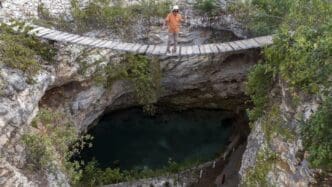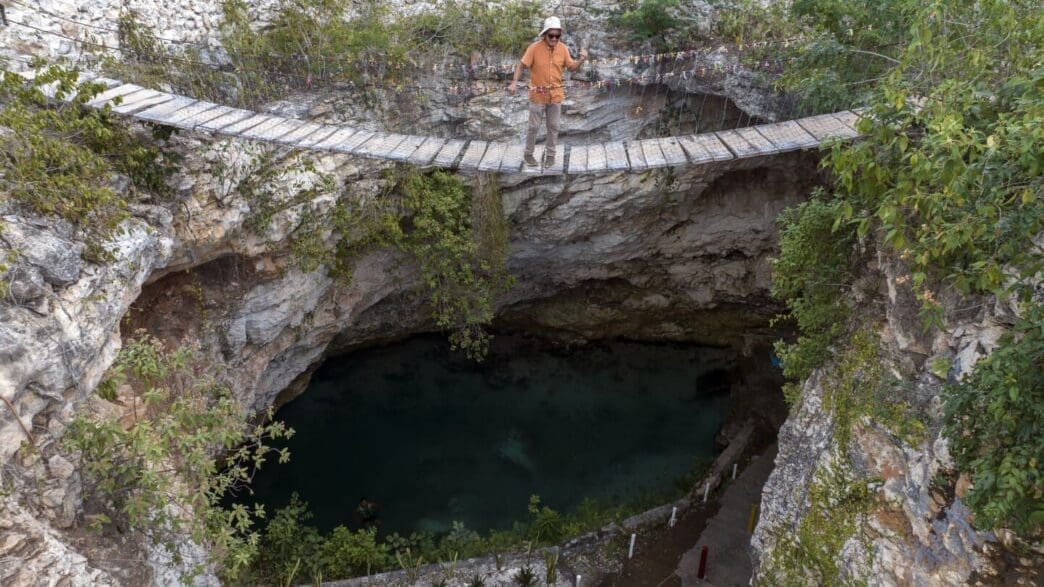Deep in Mexico’s Yucatan peninsula, an intriguing legal battle unfolds as Mayan communities rally to grant personhood status to their sacred cenotes—subterranean water bodies that have been a lifeline for millennia.
These cenotes are not just geological features; they serve as essential water sources and spiritual havens for the Indigenous Mayans. However, industrial activities, particularly pig farming, have started to pose serious threats to these pristine waters.
Organizations like the ‘Guardians of the Cenotes’ have stepped up, filing lawsuits to secure legal rights for the Ring of Cenotes. Their goal is to protect these sacred lakes from contamination by industries taking advantage of the abundant water resources in the area.
Unfortunately, the rise of unregulated pig farms in the region has resulted in pollution seeping into the cenotes. According to studies by the Ministry of the Environment, water from some cenotes shows levels of contaminants such as fecal coliforms beyond safe limits set for aquatic life.
Despite being a recognized natural protected area and considered internationally important by the Ramsar Convention, the government has been unable to curb the pollution effectively, leaving the cenotes vulnerable.
In addition to pig farms, increasing urban development and projects like the Maya Train pose further risks. The lenient regulatory environment has allowed massive infrastructure to settle in, disrupting the delicate balance of these natural habitats.
The push for personhood status could set a precedent similar to cases where nature has gained rights, like the Whanganui River in New Zealand. This step would allow legal actions to be taken on behalf of the cenotes, giving them a ‘voice’ in the courtroom.
Environmental lawyer Lourdes Medina states, “We have to be the voice and the hands for these waters.” The legal process remains ongoing, with hopes that court decisions will lean towards protecting these vital and sacred ecosystems.
By seeking personhood for the cenotes, the Mayan communities are not only protecting their heritage but also setting a global example of environmental stewardship. Their efforts highlight a deep connection to nature and a desire to ensure its preservation for future generations.
Source: Apnews








